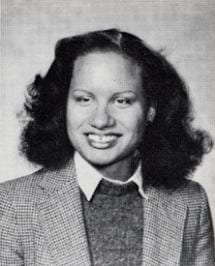Abstract
In Part 1 of her interview, Linda J. Peters begins by sharing some background information, including her multiracial identity and growing up in a Black neighborhood in Chicago, Illinois. She also recalls her reasons for choosing to attend Brown University.
Peters details attending Third World Transition Week – a program that welcomes new students to Brown and provides an exploration of systems of oppression that exist in our society today, including racism, classism, sexism, cissexism, heterosexism, ableism, and imperialism – and describes it as very “anti-white.” She also remembers facing discrimination from students who disliked the fact that she wanted to recognize all of her ethnicities and not just one.
Peters goes on to discuss courses that she took, and various organizations that were forming on campus such as Women for Brown, Women’s Health Collective, and Third World Women’s Day. Additionally, she recalls professors treating male and female students differently and being very aware of her gender. However, she asserts that her academic counselor, Professor George Borts was very fair and helpful. She concludes Part 1 by saying that Brown’s push in the ‘60s for a more diverse faculty did not continue into her time there.
In Part 2, Peters details the many jobs she had in her first six years after graduation. She explains her participation at Brown interviewing prospective students and advocating for a more diverse student population. She also elaborates on the changes she sees in student involvement, and pressures on female students, compared to her experience. She concludes by explaining the immense need for more advising.
In Part 3, Peters mentions the support she received from her mother and describes ways that women have gotten more involved on campus, particularly through the Sarah Doyle Women’s Center. Conversely, she emphasizes that the Third World Center needs new management due to its lack of understanding of the needs of minority students. She considers the pressure to have a child before she’s forty, the challenge that would place on her career, and ends up having a detailed discussion about socio-cultural issues surrounding multiracial children. Furthermore, Peters adds to her discussion of diversity at Brown and women’s need to constantly prove themselves.
In Part 4, Peters recalls that professors did not encourage original thought in her classes and the impact that has on multiculturalism. She concludes her interview by explaining that women need to define their own success and overcome supposed contradictions between feminism and what they do.
Part 1
Part 2
Part 3
Recorded on April 21, 1988 at the Brown News Bureau, Brown University, Providence, RI
Interviewed by Julia J. Hyun
Suggested Chicago style citation: Peters, Linda J. Interview. By Julia J. Hyun. Pembroke Center Oral History Project, Brown University. April 21, 1988.
Biography
Linda J. Peters grew up in Chicago, Illinois, and graduated from Brown University in 1982 with an A.B. in English literature. She has worked for the Rhode Island Hospital, Brown University’s Leadership Alliance, the Brown News Bureau, and as a realtor in the Providence area.
